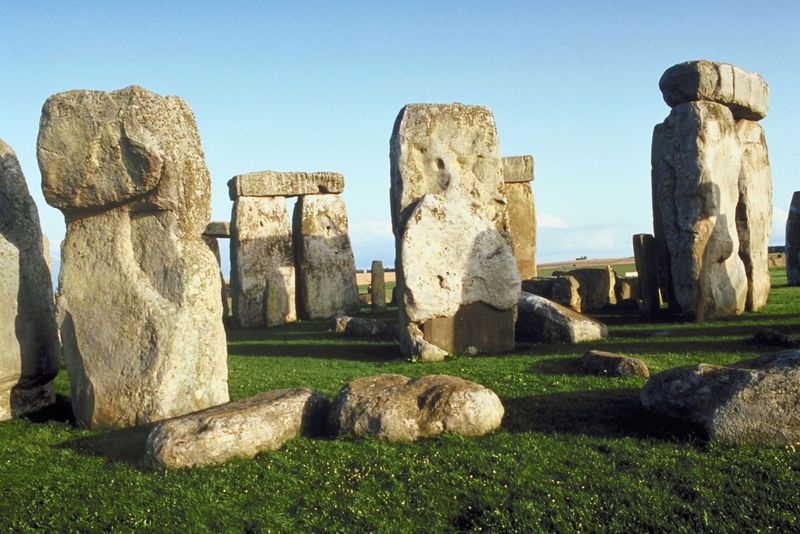I confess I believe in UFOs, just not of the space alien kind. My experience with UFOs started with my neighbor, who was a professional astronomer. When not introducing the neighborhood to the wonders of the sky, he studied UFOs. My neighbor thought of UFOs as not of this world. However, he remained skeptical of them being space aliens.
Meanwhile, one summer while playing baseball, a UFO appeared over our heads. It cast a deep black shadow on a cloudless blue sky. All of us simply stood in awe of this strange disk with blue and yellow lights. Then as suddenly as it came, the UFO zipped off.
Then we all started talking at once. We asked each other, “What was that? What did we just see?” Whatever it was, everyone agreed that their experience was mystical. What surprised me was that some of them said the UFO deepened their faith. (Most of the people playing were from the local Lutheran Church.)
Investigators of the unknown, Loren Coleman and Jerome Clark noted that the rise in UFO sightings coincided with the beginnings of space exploration. Meanwhile, the burgeoning eco-spirituality movement brought out more reports of Bigfoot, the Dover Demon and other strange creatures of nature. The two authors believe that people were unknowingly creating these phenomena. Joining together unawares, disparate people formed an unfocused group mind. This unconscious uniting pushed various kinds of UFOs and strange creatures into being.
After studying reports of encounters with alien beings, Clark and Coleman noted that people would experience UFOs in the context of their culture and era. Some saw fairies, others angels, and modern people space aliens. Understanding what these beings are is to “understand the incomprehensible.” They summarized it as (emphasis theirs): “The UFO mystery is primarily subjective and its content primarily symbolic.”
Clark and Coleman described the continuing fascination with UFOs as being rooted in “future shock.” (Note 1) They define this as “the acceleration of changes has become unbearable and the future unimaginable.” This makes living in the present problematic. Therefore, in their opinion, some people seek liberation from Western materialism by having UFO experiences. Furthermore, Carl Jung regarded UFOs as the myth for modern times.
However, people have pondered UFOs long before that. The noted astronomer Johannes Kepler wrote to Galileo, “I must point that there are inhabitants, not only on the moon but on Jupiter, too.” Various mainline theologians in the 18th and 19th Centuries advocated those extraterrestrials be included as members of God’s family. Meanwhile, Swedenborg and Emerson wrote of the mystical qualities of UFOs.
A field of theology has developed to understand UFOs in a religious context. Ted Peters, a Lutheran theologian, defines Astrotheology as (emphasis his) “that branch of theology which provides a critical analysis of the contemporary space sciences combined with an explication of classic doctrines such as creation and Christology for the purpose of constructing a comprehensive and meaningful understanding of our human situation within an astonishingly immense cosmos.”
In a paper, “Introducing Astrotheology,” Peters states the four tasks of the astrotheologian. First is to “(1) overcome geocentrism and anthropocentrism.” Second is to “(2) set the conditions for the debate between a single incarnation versus multiple incarnations in Christian soteriology.” Third to “(3) offer an internal critique to the space sciences.” Finally. “(4) contribute to public readiness for the day of contact.” In short, develop “a theology of nature (emphasis his) that is cosmic in both space and time.”
In considering UFOs, Peters cautions against the ETI (Extraterrestrial Intelligence) Myth. The ETI Myth is one subtle influence in regarding UFOs. This myth refers to the belief that ETs exist and that they are more advanced than humans. When contact is made, the Earth will be blessed by these aliens. A corollary of the ETI Myth is the Ancient Astronaut Theory. This is the belief that aliens came to Earth in prehistory and became Gods.
In fact, Tom Delonge and Peter Lavenda in “Sekret Machines: Gods, Man, and War,” claim that “All religion is UFO religion.” They write, “It slowly dawned on me (Lavenda) that UFOs might very well be the key to everything we are searching for, as human beings on this planet. They are the missing link in our consciousness, in our understanding of reality and of the parameters of time and space.”
Belief in the UFO Gods allow people to stand in awe of the heavens. With aliens, people can experience the Divine under the blessings of science. Alien contact (and disclosure) is only a day away from official validation, thereby making that more credible. Technology as developed by aliens is an expression of the Divine. Science has melded with religion to satisfy the longings of post-modern people.
From what I have read and experienced, UFOs are other than Gods. They are a part of our Cosmos much like Ancestors and Land Spirits. They are beyond human understanding and not necessarily Ancient Astronauts of the Space Alien Kind. For me, UFOs have deepened my belief in the Cosmos.
Notes:
Note 1. From Alvin Toffler’s book “Future Shock” (1970): A condition of distress and disorientation brought on by the inability to cope with rapid societal and technological change.
Works Used:
Jerome Clark and Loren Coleman, “Creatures of the Outer Edge.” San Antonio: Anomalist Books. 2006.
—-, “The Unidentified.” 2006.
Andrew Collins and Gregory L. Little, “Origin of the Gods.”
John Michael Greer, “The UFO Chronicles.”
Dr. Allan Hunter, “Spiritual Hunger: Integrating Myth and Ritual into Daily Life.”
Gregory L. Little, “The Archetype Experience.”
Diana Walsh Pasulka, “American Cosmic: UFOs, Religion, Technology.”

